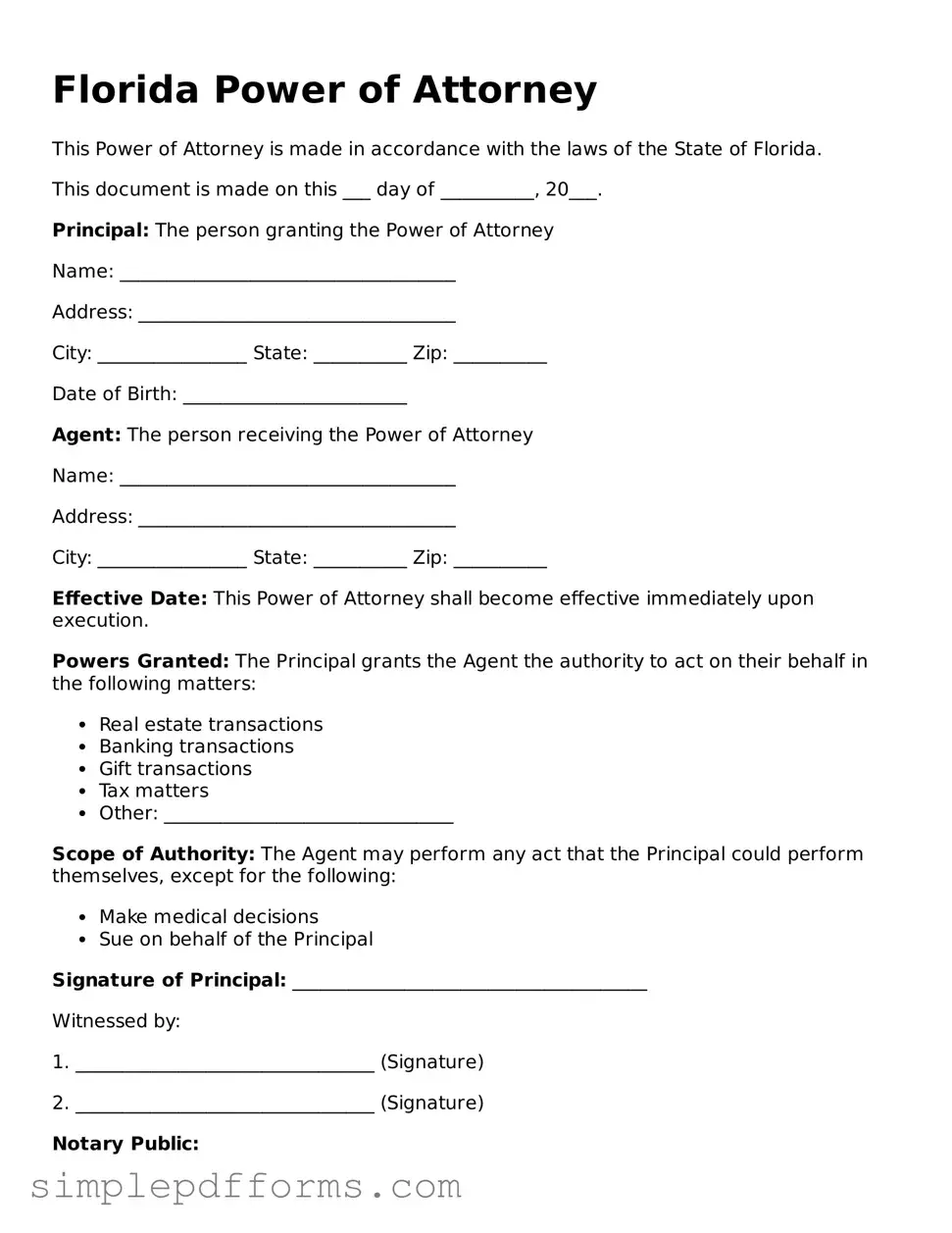Attorney-Verified Power of Attorney Document for Florida State
A Power of Attorney form in Florida is a legal document that allows one person to grant another the authority to make decisions on their behalf. This can include financial matters, healthcare decisions, or other important choices when the individual is unable to act for themselves. Understanding this form is crucial for ensuring that your wishes are respected and that your affairs are managed effectively.
Open Power of Attorney Editor Now

Attorney-Verified Power of Attorney Document for Florida State
Open Power of Attorney Editor Now

Open Power of Attorney Editor Now
or
Get Power of Attorney PDF Form
Your form is waiting for completion
Complete Power of Attorney online in minutes with ease.